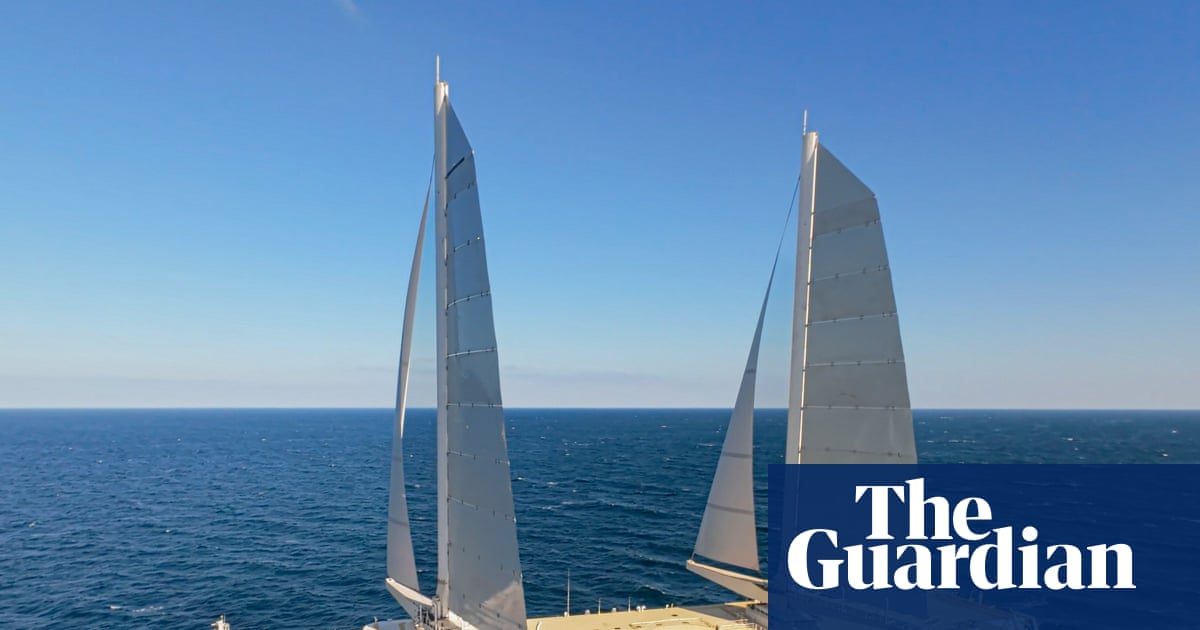
"By operating at a reduced speed, and chasing the wind, the Neoliner Origin's goal is to reduce its greenhouse gas emissions by 80% compared with an equivalent diesel-powered cargo ship and in the process, chart a course to decarbonise the notoriously dirty shipping industry. It is being powered primarily by the two semi-rigid sails made from carbon and fibreglass and a backup diesel-electric engine."
"I accepted the invitation to sail on the Neoliner Origin because, as an environmental writer, its first transatlantic journey happened to align with my own goal: to travel from my home in Berlin to visit my family in Canada without flying, in a bid to reduce my carbon footprint. Roughly 80% of goods traded worldwide are transported by ship, and the industry accounts for about 3% of global carbon emissions. If shipping were a country, it would be the world's sixth-largest emitter."
The Neoliner Origin is the world's largest sailing cargo ship undertaking a two-week inaugural voyage from the west coast of France to Baltimore. Severe weather produced winds reaching 74mph (force 12), requiring repairs to the front sail and demonstrating the vessel's exposure to extreme conditions. The ship operates at reduced speed and chases the wind to lower emissions, relying primarily on two semi-rigid carbon-and-fibreglass sails with a diesel-electric backup. The voyage carries eight passengers, a dozen-plus crew and 1,204 tonnes of cargo including 500,000 bottles of Hennessy and refrigerated brioche. Shipping moves about 80% of traded goods and causes roughly 3% of global carbon emissions.
Read at www.theguardian.com
Unable to calculate read time
Collection
[
|
...
]